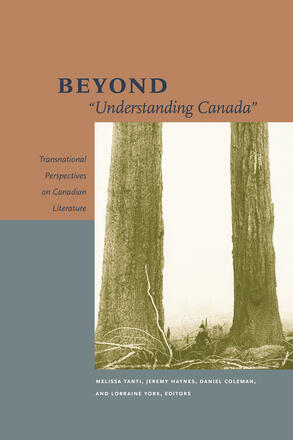
Beyond "Understanding Canada"
Transnational Perspectives on Canadian Literature
Description
The dismantling of “Understanding Canada”—an international program eliminated by Canada’s Conservative government in 2012—posed a tremendous potential setback for Canadianists. Yet Canadian writers continue to be celebrated globally by popular and academic audiences alike. Twenty scholars speak to the government’s diplomatic and economic about-face and its implications for representations of Canadian writing within and outside Canada’s borders. The contributors to this volume remind us of the obstacles facing transnational intellectual exchange, but also salute scholars’ persistence despite these obstacles. Beyond “Understanding Canada” is a timely, trenchant volume for students and scholars of Canadian literature and anyone seeking to understand how Canadian literature circulates in a transnational world.
Contributors:
Michael A. Bucknor, Daniel Coleman, Anne Collett, Pilar Cuder-Domínguez, Ana María Fraile-Marcos, Jeremy Haynes, Cristina Ivanovici, Milena Kaličanin, Smaro Kamboureli, Katalin Kürtösi, Vesna Lopičić, Belén Martín-Lucas, Claire Omhovère, Lucia Otrísalová, Don Sparling, Melissa Tanti, Christl Verduyn, Elizabeth Yeoman, Lorraine York
Reviews
"Beyond 'Understanding Canada' takes its name and impetus from the Canadian government’s 2012 cancellation of the “Understanding Canada” program, which ended nearly forty years of financial support for interdisciplinary studies of Canada around the world. As the title suggests, the collection quickly moves beyond the Understanding Canada program to examine a broader range of questions regarding the transnational circulation of Canadian literature.... [The collection] succeeds admirably, overcoming the 'material challenges' of international scholarship not only to argue for but also to demonstrate convincingly the transnational nature of Canadian literary studies." Canadian Literature 235, Winter 2017 [Full article at http://canlit.ca/article/transnational-nationalism]
- Robert Zacharias
"The editors draw a number of important conclusions from the collection: that the popularity of Canadian women writers abroad must be linked to their power politics; that Canada has a set of ‘less laudable links’ (Collett) that need to be examined too; that indigenous writing needs to be more visibly worked into transnational contexts, that ‘transing [as in ‘transnational’] provides an opportunity to unsettle the profitability of any singular notion of national identity’."
- Christine Lorre-Johnston & Mark Williams